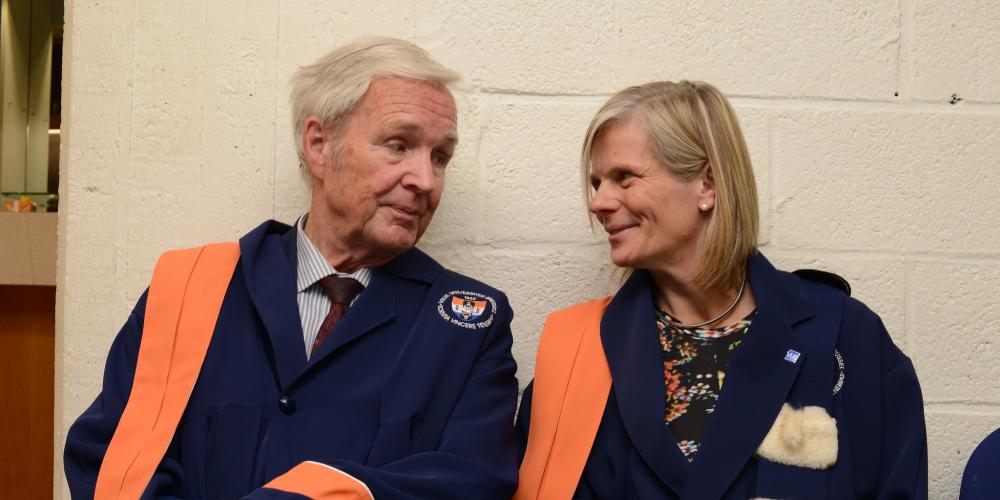
Dutch former politician, writer and scientist Jan Terlouw has died at the age of 93. Terlouw received an honorary doctorate from the Vrije Universiteit Brussel in 2017 from Rector Caroline Pauwels for his outstanding commitment to science, sustainability and democratic values.
In awarding the honorary doctorate, the VUB praised Jan Terlouw for his ability to translate scientific insights into social commitment. He was appreciated for his clear view on the role of science within a democratic society and his talent to make complex topics such as climate change, nuclear energy and trust in government understandable to a wide audience. This social drive was evident not only in his political career, but also in his literary work, in which he always argued for justice and sustainability. Terlouw showed himself to be a critical thinker who did not look away from the pressing issues of his time. Together with four other committed thinkers, he received the honorary doctorate in a ceremony dedicated to the theme Break down the walls - a plea to break down scientific walls to contribute to solutions for societal challenges.
Rector Caroline Pauwels was proxima of Jan Terlouw and said at the time, ‘He fits perfectly with the theme of our honorary doctorates: Break down the walls. Terlouw is simultaneously a scientist, writer and (former) politician. That is not an obvious combination, but Terlouw manages to be somewhat of a politician, writer and scientist at the same time in everything he does.’
Physicist and politician
Terlouw studied physics at Utrecht University and initially worked as a nuclear physicist at the Energy Research Centre of the Netherlands. Although he was interested in politics and society from a young age, his public career only really began in the 1970s, when he became active within Democrats 66 (D66). As party leader and later Minister of Economic Affairs in the Van Agt II cabinet, he was known for his integrity, knowledge of the file and farsightedness on environmental policy.
Book author
Besides his political career, Terlouw wrote successful children's books, of which Oorlogswinter and Koning van Katoren are the best known. His work is characterised by a strong moral undertone, focusing on themes such as justice, individual responsibility and trust. The stories appeal to generations of readers and are still read in schools in the Netherlands and Flanders today.
Moral beacon
Even in later life, Terlouw continued to take an active part in the public debate. He spoke at schools, in parliaments and at international conferences. His pleas for sustainability, responsibility and social cohesion were widely echoed, especially by younger generations. In doing so, he embodied the social responsibility that the VUB also places at the heart of its teaching and research. He was often described as a ‘moral beacon’ in turbulent times - someone who brought science and ethics together in clear language and human commitment.
The VUB commemorates Jan Terlouw as an honorary doctor who, with his multifaceted career and intellectual integrity, bridged the gap between science and society in an inspiring way. His thinking and writing remain a source of reflection and inspiration for all those committed to a sustainable, just future.